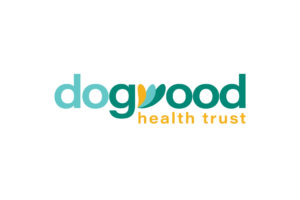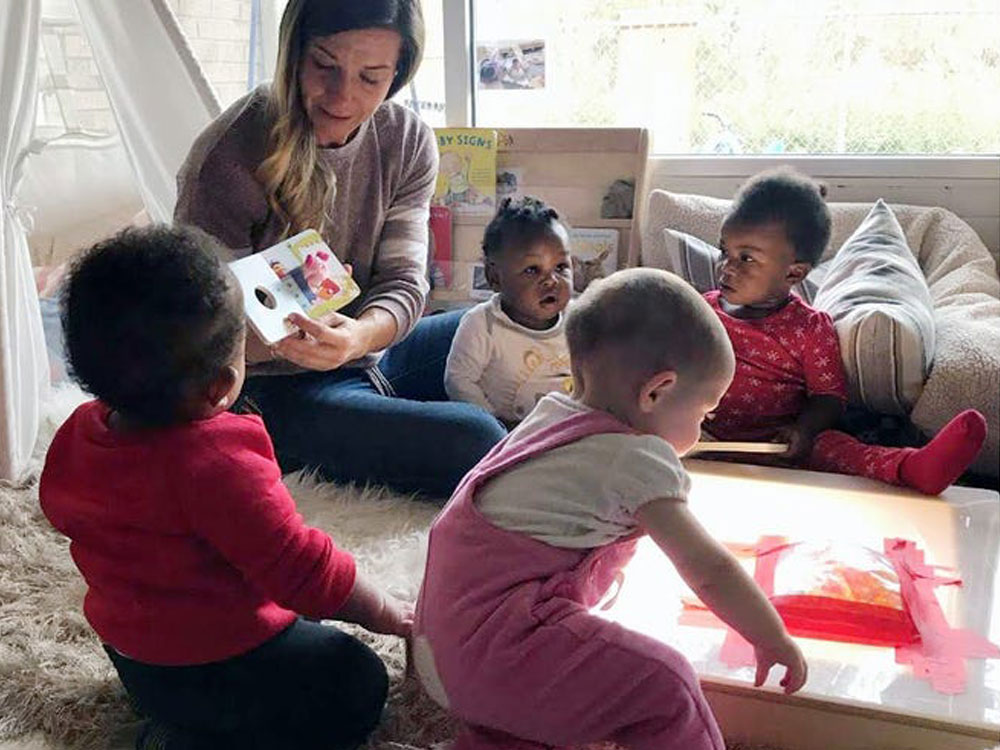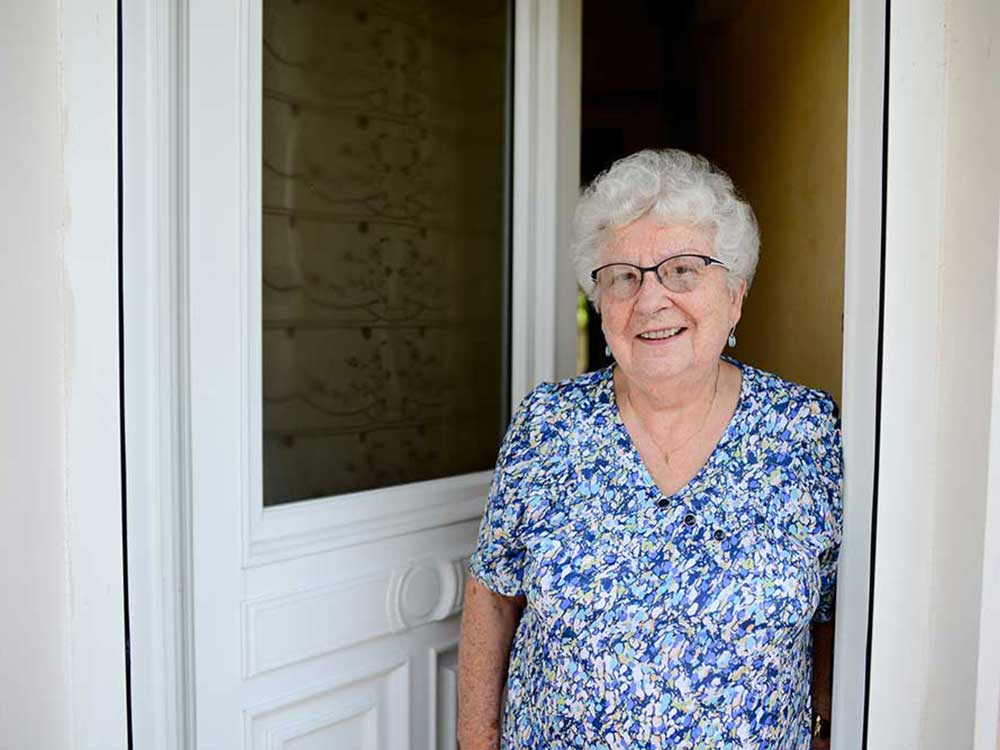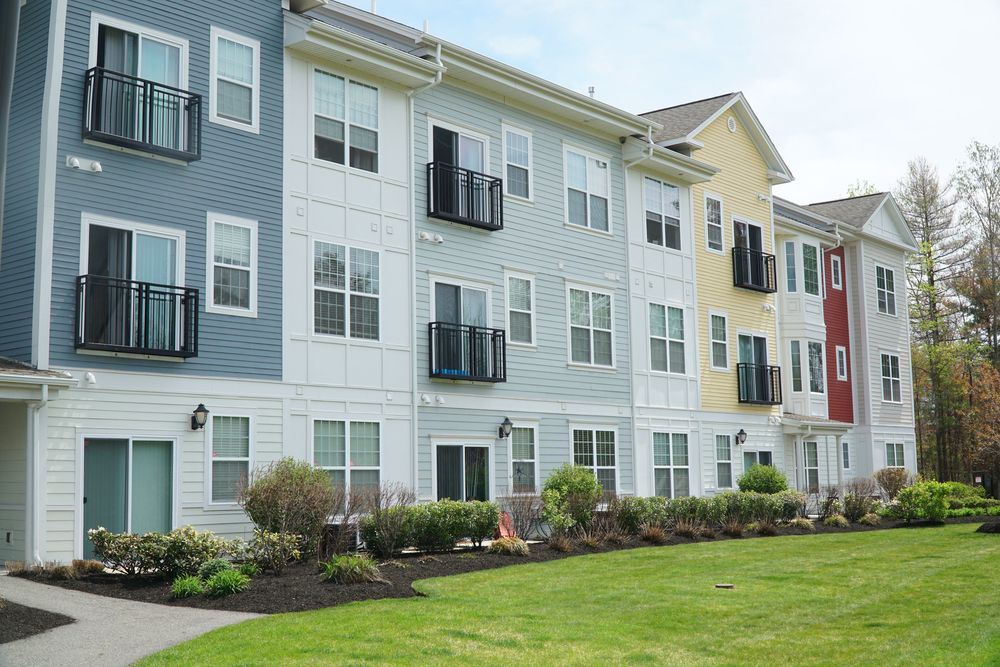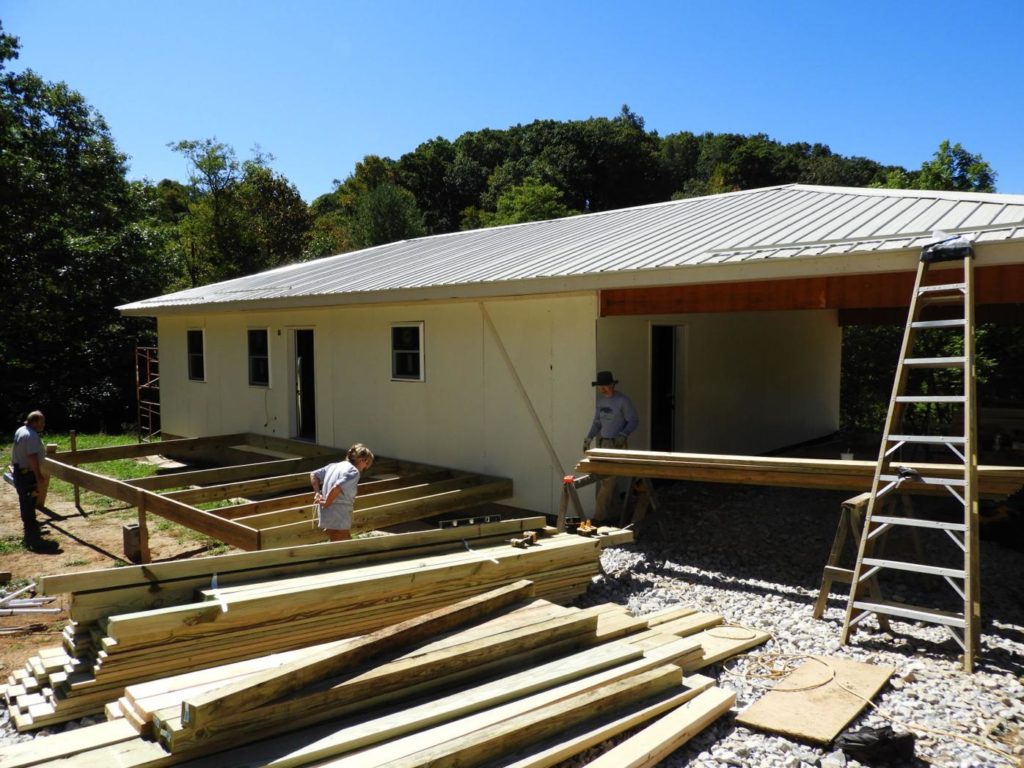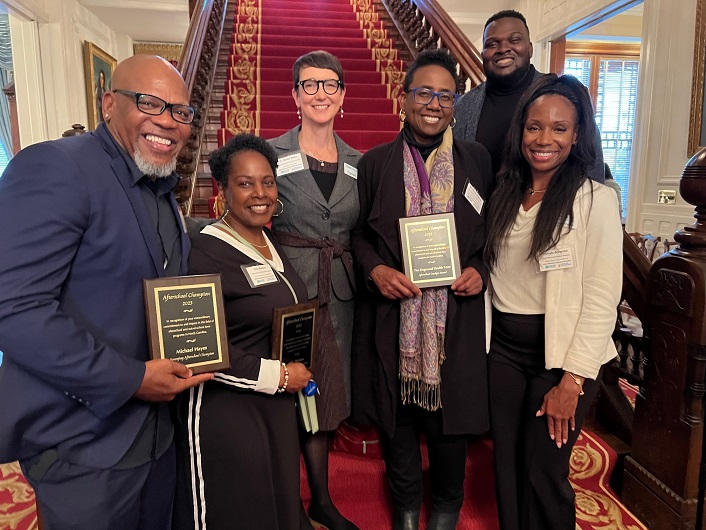
Asheville – Dogwood Health Trust has been selected as one of the North Carolina Center for Afterschool Programs’ 2023 Afterschool Champions, receiving the Afterschool Catalyst award. The award recognizes Dogwood’s remarkable contributions to the field of afterschool and out-of-school time (OST) programs. Dr. Susan Mims, CEO of Dogwood Health Trust., Dr. Ereka Williams, Vice President – Education at Dogwood, Victoria Brownlee, Officer – Education, and Stephen Blount, Community Investment Assistant were present to receive the award by Governor Roy Cooper, Senator Sydney Batch and Senator Jay Chaudhuri on October 26 during the Lights On Afterschool reception in Raleigh. Lights On Afterschool is an annual nationwide campaign celebrating afterschool programs and their important role in the lives of children, families and communities.
“It’s incredibly gratifying to have our team recognized for this work,” said Dr. Susan Mims, CEO of Dogwood Health Trust. “But, this recognition is really about the work our partners do every day to ensure that we have a supportive ecosystem for the children and families of Western North Carolina.”
“At Dogwood, we are deeply committed to high-quality evidence-based, aligned practices that support the entire ecosystem for a child, including home, school, and community,” said Dr. Ereka Williams, Vice President – Education at Dogwood Health Trust. “We have to be concerned about who engages with our children in the out-of-school space and ensure they’re safe.” Williams goes on to say that whole children grow up in whole communities and contribute to the whole of society. “This is where we see our space as a partner, working alongside local, state and federal agencies to prop up communities in a positive way.”
To make OST experiences more accessible and meet the needs of the youth and families in its communities, Dogwood launched the WNC After 3 pm initiative. Dogwood partnered with the North Carolina Center for Afterschool Programs (NC CAP) to conduct a landscape analysis of the OST programs in the region. Eighty-three OST providers operating more than 134 different programs participated in an online survey examining the locations and characteristics of OST programs, as well as the strengths, challenges, and gaps in OST programs in Western North Carolina. Thirty providers participated in follow-up focus groups that explored in greater depth the challenges and opportunities facing OST providers and professionals. Dogwood then requested proposals from nonprofit organizations, government agencies, educational institutions and others who serve the Qualla Boundary and Dogwood’s 18-county service region in Western North Carolina and wanted to expand OST programming. The RFP closed in July and award notifications will be made in November with funds being distributed in December.
“We are so excited to be among the millions of Americans celebrating the importance and impact of Afterschool and expanded learning programs through this Lights On Afterschool event,” said NC CAP Director Elizabeth Anderson. “We are so proud of North Carolina’s afterschool programs and providers. The work they do is both joyful and challenging, and they change children’s lives every day by providing them with enrichment, support, and unique opportunities for identity development.”
Learn more about the annual National Lights on Afterschool campaign here.
About Dogwood Health Trust
Dogwood Health Trust is a private foundation based in Asheville, North Carolina with the sole purpose of dramatically improving the health and wellbeing of all people and communities of 18 counties and the Qualla Boundary in Western North Carolina. Dogwood Health Trust focuses on innovative and equitable ways to address the many factors that contribute to overall health and wellbeing, with a focus on housing, education, economic opportunity, and health and wellness. Dogwood Health Trust works to create a Western North Carolina where every generation can live, learn, earn and thrive, with dignity and opportunity for all, no exceptions. To learn more, please visit www.dht.org.
###

